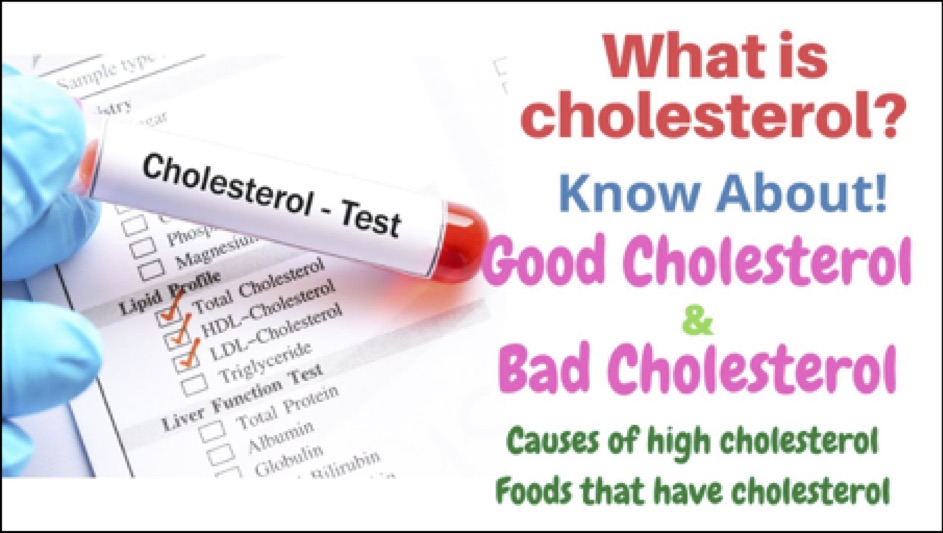Cholesterol is a fat-like substance that is present in every cell of the body and is carried in the blood stream. Cholesterol and its derivatives are important constituents of cell membranes and precursors of other steroid compounds
HDL or High density lipoproteins are referred to as good cholesterol which returns excess cholesterol to the liver. HDL protects us from heart disease and stroke, we need to keep the level up, in male above 40, women above 50 mg/dl.
LDL or Low-density lipoproteins are referred to as Bad cholesterol, makes up most of your body’s cholesterol. High levels of LDL cholesterol raise your risk for heart disease and stroke.
Eating foods such as red meat, whole milk dairy products, egg yolks can increase cholesterol levels. Being overweight can increase your bad cholesterol and lower your HDL. Also, a sedentary lifestyle, lack of exercise, Alcohol abuse can raise your cholesterol.
High Cholesterol does not cause any symptoms, when we do the test called lipid profile we can detect high cholesterol levels. The test calculates Total Cholesterol, Triglycerides, HDL and LDL levels.
High Cholesterol levels in the body can build up unwanted plaque which block or narrows the arteries and restrict the blood flow, if it blocks coronary arteries causing heart attacks. It can also block an artery to the brain causing stroke.
There are no medicines to increase the HDL Cholesterol at present. Do regular exercise and eat less fatty foods. Moderate your alcohol intake and eat more fruits and vegetables.
A number of certain health conditions are known to increase cholesterol levels, including Diabetes, thyroid disorders, kidney disease, hypothyroidism and liver diseases.
Many factors also contribute to high cholesterol including a family history of high cholesterol levels, physical inactivity and being overweight.
Women after attaining menopause loose the protective effect of oestrogen to the heart. They are strong candidate for treatment of high cholesterol to protect heart.
Simple tips would be,
· Take more fruits, vegetables, whole grains and beans. …
· Reduce your fat intake. …
· Eat more plant sources of protein. …
· Take less refined grains, such as white flour. …
· Regular exercise, maintain your BMI.
By all these, you can lower your cholesterol levels. You can reduce the consumption of sugar. Smaller fish better than big fish, Chicken is better than red meat. You can lose weight if you are overweight and please stop smoking.
Cholesterol lowering drugs are Bile acid binding resins, Fibrates, Niacin, Statin. Statins, the mainstay of high cholesterol treatment, are drugs that cause the liver to clear more cholesterol.
In addition to lowering LDL levels, they also may help decrease the levels of triglycerides.